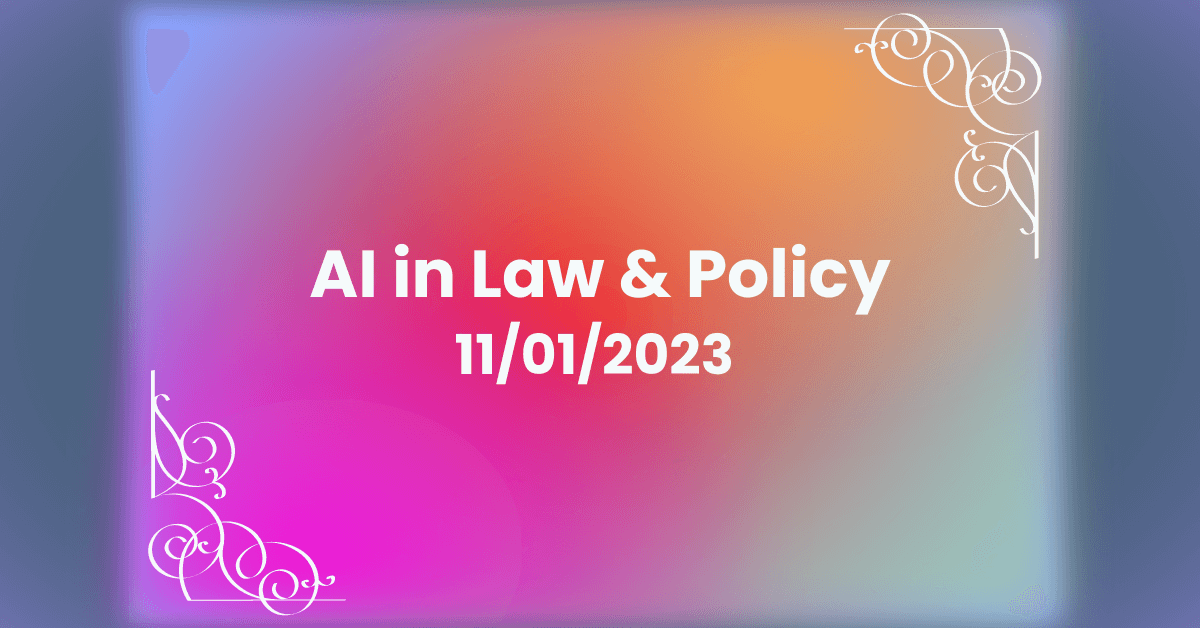Litigation Against OpenAI
AP reports more litigation against OpenAI, with a new lawsuit in late September organized by the Authors Guild and which includes among its plaintiffs John Grisham, Jodi Picoult, and George R.R. Martin. The class-action before the Southern District of New York federal court cites copyright infringement, a theory already familiar to OpenAI, as this marks only the latest in a growing list of litigation woes facing the AI giant. As with prior suits, OpenAI can reasonably be expected to allege fair use, among other defenses.
In Washington, in early November the White House is expected to release a new executive order setting standards for the use of generative AI by executive agencies, ISMG reports. This comes ahead of the AI Safety Summit, UK Prime Minister Rishi Sunak’s effort to bring together Silicon Valley leaders and governments on November 1 and 2, which Vice President Harris is expected to attend.
The summit generated some backlash for the Prime Minister due to the controversial decision to invite representatives from Beijing, which has been criticized for harnessing generative AI for surveillance of those within its borders. While it is yet to be seen whether China will send representatives, they have accepted the invitation.
The summit represents only the most recent strategic move by the UK to establish itself as a global leader in regulating generative AI, especially in light of imminent regulatory measures from the European Union. The EU’s Artificial Intelligence Act entered inter-institutional negotiations on October 24, with the EU Council, Parliament, and Commission expected to reconvene in early December, Euractiv reports. The UK government, like the US, might well take notice. In the absence of a regulatory scheme to protect individuals from the dangers of AI–not just to property, but to privacy and security–OpenAI, Microsoft, and Google will continue to set the terms and define the conversation.







